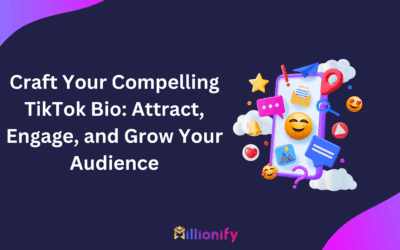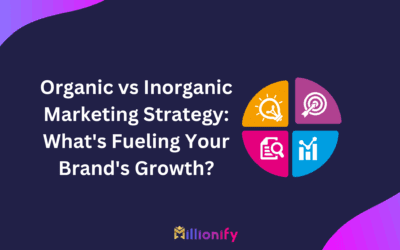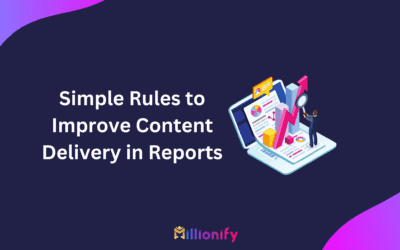Navigating the complexities of digital marketing can be particularly challenging for businesses lacking specialized expertise in this domain. This is where a digital marketing agency can make a significant impact. By leveraging their comprehensive knowledge and resources, these agencies can craft and implement strategies that drive growth and enhance visibility. But why exactly should you hire a digital marketing agency? Let’s explore the multitude of benefits and compelling reasons that make this an essential business decision.
Understanding Digital Marketing
Digital marketing encompasses all marketing efforts that use the internet and electronic devices. Businesses leverage various digital channels such as search engines, social media, email, and websites to connect with current and prospective customers. The primary goal is to increase online presence, drive traffic, and convert leads into sales.
The Complexity of Digital Marketing
The digital marketing ecosystem is vast and constantly evolving. It includes:
- Search Engine Optimization (SEO)
- Pay-Per-Click Advertising (PPC)
- Content Marketing
- Social Media Marketing
- Email Marketing
- Affiliate Marketing
- Influencer Marketing
- Analytics and Reporting
Each of these areas requires specialized knowledge and expertise. Keeping up with the latest trends, algorithm changes, and best practices can be overwhelming for businesses, particularly small and medium-sized enterprises.
Why Hire a Digital Marketing Agency?
Hiring a digital marketing agency can provide numerous advantages that can significantly impact your business growth. Here’s why:
1. Expertise and Experience
Digital marketing agencies consist of teams of professionals who specialize in different aspects of digital marketing. They bring a wealth of experience and knowledge to the table. Here’s why their expertise matters:
- Specialized Skills: Agencies employ experts in SEO, PPC, content creation, social media management, and more. Each professional focuses on their niche, ensuring high-quality work.
- Staying Updated: Digital marketing is ever-evolving. Agencies stay updated with the latest trends, tools, and techniques to keep your campaigns relevant and effective.
2. Cost-Effectiveness
Hiring an in-house digital marketing team can be costly. Salaries, benefits, training, and tools add up quickly. In contrast, an agency provides a team of experts at a fraction of the cost. Here’s a breakdown:
- Savings on Tools and Software: Agencies have access to premium tools and software required for digital marketing. These tools are expensive and require training, which the agency handles.
- Flexible Pricing: Agencies offer various pricing models, including monthly retainers, project-based pricing, and hourly rates. This flexibility allows you to choose a plan that fits your budget.
3. Access to Advanced Tools and Technologies
Digital marketing agencies use advanced tools and technologies to execute and analyze campaigns. These tools offer insights and data that are crucial for making informed decisions. Examples include:
- Google Analytics: For tracking website performance and user behavior.
- SEMrush: For keyword research, SEO audits, and competitive analysis.
- Hootsuite: For managing and scheduling social media posts.
- Mailchimp: For creating and analyzing email marketing campaigns.
4. Focus on Core Business Activities
Outsourcing digital marketing allows you to focus on what you do best – running your business. You won’t have to worry about managing marketing campaigns, tracking performance, or keeping up with industry changes. This frees up your time and resources to:
- Improve Products or Services: Concentrate on enhancing your offerings.
- Customer Service: Provide better support and build stronger relationships with your customers.
- Strategic Planning: Devote more time to long-term business strategies and growth.
5. Consistency and Reliability
Consistency is key in digital marketing. An agency ensures that your marketing efforts are consistent across all channels. They develop and adhere to a comprehensive strategy that aligns with your business goals. This includes:
- Regular Content Updates: Posting regular blog posts, social media updates, and email newsletters.
- Ongoing Campaigns: Running continuous PPC and SEO campaigns to maintain visibility.
- Performance Monitoring: Tracking and reporting campaign performance to make necessary adjustments.
6. Measurable Results and ROI
Digital marketing agencies use key performance indicators (KPIs) to measure the success of campaigns. They provide detailed reports that show:
- Traffic Growth: Increase in website visitors over time.
- Conversion Rates: Percentage of visitors who take desired actions, such as making a purchase or signing up for a newsletter.
- Return on Investment (ROI): Comparing the cost of marketing campaigns to the revenue generated.
These metrics help you understand the effectiveness of your marketing efforts and make data-driven decisions.
7. Scalability
As your business grows, your marketing needs will change. Digital marketing agencies offer scalable services that can grow with your business. Whether you need to ramp up your SEO efforts, launch a new product, or expand into new markets, an agency can adjust your marketing strategy accordingly.
8. Fresh Perspectives
An external agency brings a fresh perspective to your business. They offer new ideas and strategies that you might not have considered. Their objective viewpoint can help identify opportunities and areas for improvement. Additionally:
- Creative Campaigns: Agencies often have creative teams that can develop innovative campaigns that capture attention.
- Industry Insights: They provide insights into industry trends and competitor strategies, helping you stay ahead.
Case Studies and Success Stories
Case Study: E-commerce Business Boosts Sales by 150%
An e-commerce company struggling with stagnant sales decided to hire a digital marketing agency. The agency implemented a comprehensive strategy that included SEO, PPC, and social media marketing. Within six months, the company saw a 150% increase in sales. Here’s how:
- SEO Optimization: Improved website content and structure, resulting in higher search engine rankings and organic traffic.
- PPC Campaigns: Targeted ads that brought immediate traffic and conversions.
- Social Media Engagement: Engaging content and promotions on social media platforms that increased brand awareness and customer loyalty.
Case Study: Local Service Business Increases Leads by 300%
A local service business was struggling to attract new clients. After hiring a digital marketing agency, they experienced a 300% increase in leads. The agency’s approach included:
- Local SEO: Optimizing the business for local searches, ensuring it appeared in local listings and map searches.
- Content Marketing: Creating valuable blog posts and guides that addressed common customer questions and concerns.
- Email Campaigns: Targeted email campaigns that nurtured leads and converted them into customers.
Conclusion
In today’s digital age, having a robust online presence is essential for business success. Hiring a digital marketing agency offers numerous benefits, from expert knowledge and cost savings to advanced tools and scalable services. By partnering with an agency, you can focus on your core business activities while ensuring your digital marketing efforts are consistent, effective, and measurable. Ultimately, this strategic move can lead to significant business growth and a strong competitive edge.
FAQs
1. How much does it cost to hire a digital marketing agency?
The cost of hiring a digital marketing agency varies based on the services required, the agency’s expertise, and the scope of your campaigns. Agencies offer different pricing models, such as monthly retainers, project-based fees, and hourly rates, allowing businesses to choose a plan that fits their budget.
2. How do I choose the right digital marketing agency for my business?
When choosing a digital marketing agency, consider factors such as their experience, expertise in your industry, case studies, client testimonials, and the range of services they offer. It’s also important to ensure they understand your business goals and can provide a customized strategy.
3. Can a digital marketing agency help with social media management?
Yes, digital marketing agencies often offer social media management services. They can create and manage your social media profiles, develop engaging content, run paid advertising campaigns, and analyze performance to ensure your social media efforts align with your business objectives.
4. What is the difference between SEO and PPC?
SEO (Search Engine Optimization) focuses on improving your website’s organic search engine rankings through optimized content and technical improvements. PPC (Pay-Per-Click) involves paid advertising where you pay each time someone clicks on your ad. Both strategies aim to drive traffic to your website, but SEO is a long-term strategy, while PPC offers immediate results.
5. How long does it take to see results from digital marketing efforts?
The timeline for seeing results from digital marketing efforts varies depending on the strategies used and the competition in your industry. SEO efforts typically take several months to show significant results, while PPC campaigns can generate traffic and leads almost immediately. Consistent and well-executed digital marketing campaigns generally yield noticeable improvements within six months to a year.


